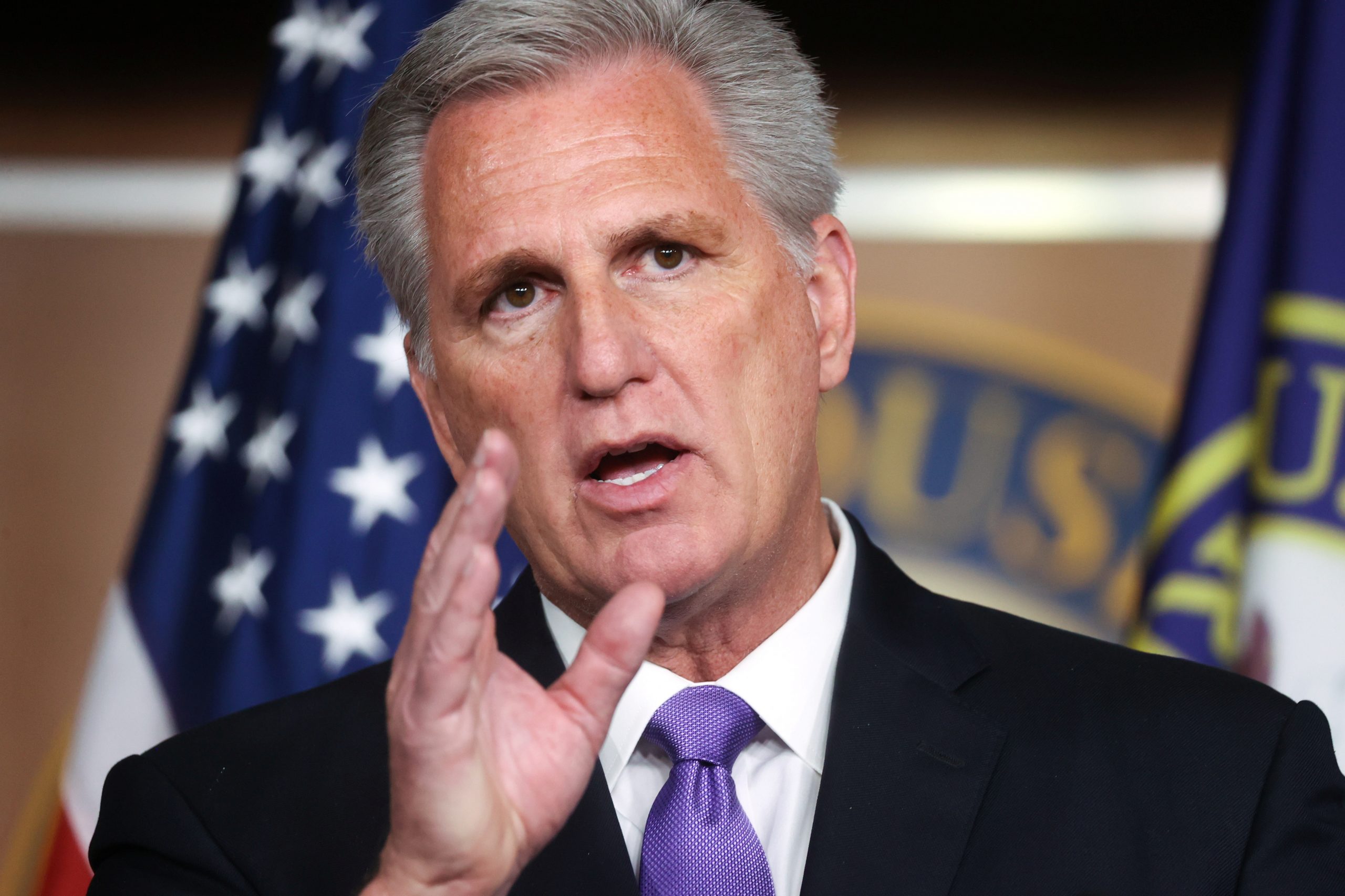
Willie R. Tubbs, FISM News
[elfsight_social_share_buttons id=”1″]
President Joe Biden might call Republicans the party of MAGA and Donald Trump, but House Minority leader Kevin McCarthy is clearly reading from the Newt Gingrich playbook as he angles to inspire voters to flip the lower chamber to the right this November.
Wednesday, Axios reported that McCarthy will officially unveil what he’s calling a “Commitment to America” on Sept. 19, about six weeks before election day.
The effort is reminiscent of Gingrich’s “Contract with America” in 1994, which he rolled out about six weeks before a midterm election and ended with Republicans sweeping to power in the House and Gingrich being elected speaker.
Gingrich, however, did not have to contend with the internet, and it’s become painfully clear that whatever grand reveal for which McCarthy might have hoped will be more like a confirmation ceremony.
Details of the plan, which is expected to be relatively short and meant to give Republicans a singular nationwide message, have already begun to leak.
Axios shared four PDF files, each circulated by McCarthy to party members prior to the August recess.
The documents speak to a Republican Party hoping to galvanize independent voters and moderates, which is a deviation from Biden’s claims of a MAGA-steered party. At minimum, the McCarthy plan speaks of a party that is not interested in allowing what they hope to be a referendum on Biden to become a referendum on former President Donald Trump.
Indeed, there is no mention of Trump in the documents, nor any support for Trump’s belief that the 2020 election was stolen. The only connection one could draw between Trump and the McCarthy plan is that the latter criticizes Biden for using governmental means of attacking the current president’s political opponents.
According to available information, McCarthy’s plan will be framed around Republicans building a stronger economy, bolstering national security and general safety, offering more liberty, and providing heightened accountability measures that will limit a Biden administration, as well as the Democrat Party more broadly, that conservatives say has run amok.
“Our government should work for the people, not against them. But under one-party rule the Democrats have used the government to silence their critics – even as those critics demand their constitutional rights,” the corresponding PDF reads. “When faced with these obvious abuses of power, Democrats in Congress bury their heads in the sand.”
All of the key tenets of the McCarthy plan are what one would predict from the right – a party-wide commitment to patriotism, intense focus on lowering inflation, and securing the southern border – but where the plan differs from mere platitudes is in the fact that it offers specific steps Republicans would take to improve on the track record of the Democrats.
For example, the McCarthy plan has a significant portion dedicated to social media and tech reform. While the plan repeats common complaints that conservatives are disproportionately targeted for marginalization by social media and tech companies, Republicans also pledge to complete a full overhaul of the laws that govern tech and social media.
The end result would be a recalibration aimed at starting “over with rules that promote free speech.”
Central to that effort would be a repeal of Section 230, the federal code that protects social media and tech companies from being sued or held criminally liable for third-party content posted on their platforms.
The pledges are all no doubt music to the conservative ear, but the fact remains that Republicans would be hard-pressed to enact much change even with a tectonic-shift-inducing win in November.
Biden’s position in the White House would make large-scale policy changes difficult, if not impossible. However, as written about in more detail by The Hill contributor Mark Strand, a Republican-controlled House could still make waves, particularly in the area of government oversight.
It is possible, Strand writes, that a Republican House could sue the Biden administration for bypassing congressional oversight – and the system of checks and balances – in his now well-known cancellation of a portion of student debt. In so doing, Republicans could acquire a court order allowing the House to block the disbursement of the funds.
